Swiss Jewish leader recalls creation of Israel
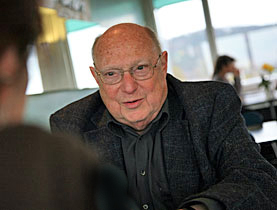
The former president of the Swiss Federation of Jewish Communities says a solution to the Middle East conflict is possible despite seemingly irreconcilable differences.
Rolf Bloch was speaking to swissinfo shortly before Israel celebrates its 60th anniversary as a state on May 14.
Bloch, who was 18 in 1948, grew up in Bern where he studied law before he joined the family-owned chocolate firm, Camille Bloch.
He says he can represent both the Swiss and Jewish point of view as a result of a double sensitivity.
In the 1990s Bloch was instrumental in helping to settle a dispute over Switzerland’s role during World War Two, including its restrictive policy towards the Jewish community.
swissinfo: What are your memories of the declaration of Israel as an independent state in 1948?
Rolf Bloch: It was a historic moment. There hadn’t been a Jewish state in that region for 2,000 years. I could therefore witness, as I then saw it, how its history started again.
swissinfo: Did you celebrate the event in Switzerland?
R.B.: In Bern we weren’t exactly Zionists in the nationalist sense – instead we saw it more as a historical event. And we didn’t have much chance to celebrate as the War of Independence broke out immediately.
It was far from certain whether this new state would survive. It looked as though Israel was up against a superpower. So it was not so much an occasion to celebrate as to tremble.
swissinfo: Up until the early Seventies Israel received a lot of sympathy and support, including from Switzerland. Were you proud of that?
R.B.: Of course. The thought that Jews, after the period of persecution in Europe, now had a sanctuary gave us a feeling of security.
Switzerland was fortunately spared that persecution, but we still didn’t know whether it was going to break out again. To know that there was now a country where every Jew could go was a good feeling.
What’s more, in Switzerland we could identify with this small country that had asserted itself – just as Switzerland had done when surrounded by a large army during the Second World War.
swissinfo: But then attitudes changed. Israel was increasingly criticised for its policies concerning settlements and occupation. How did you deal with that?
R.B.: It caused a certain sorrow, almost like a Greek tragedy. The dynamics of the situation were such that Israel had to assert itself if it wanted to survive. However it couldn’t or wouldn’t find the way that would lead to a solution.
There was resistance to a peaceful solution among the Arabs as well as among the Israelis. In such an atmosphere it was difficult to come up with a long-lasting solution. There was no Palestinian state, no logical partner for dialogue.
swissinfo: Do you see a way out of the mess in the Middle East?
R.B.: Not at the moment, but I believe there must be one. Neither side can live in such an atmosphere. Most Israelis want a solution, but they are insecure after everything they’ve been through. They don’t know whether they can trust peace.
I favour a two-state solution. It’s just a question of time until the route is planned out and the mutual mistrust is overcome. Peace won’t come overnight.
swissinfo: An article in the Tages-Anzeiger newspaper from April 21 said: “Military force used on orphanage. Israel destroys Islamic social projects in Hebron [in the West Bank].” What goes through your head when you read this?
R.B.: I visited Hebron two years ago and tried to understand what was going on. I was very unhappy about the conflict that prevailed. Hebron is a historical place for Jews and for Muslims, a burial site for the family of Abraham.
As a result there are fanatical Jews in the area who want to drive everyone else away. I am strongly against that. The case of Hebron shows that a balanced solution has to be found.
When I see such reports and pictures, of course I feel bad – but I don’t feel responsible. I have also become cautious. Pictures should be scrutinised. They can lie and be taken out of context. You just don’t know.
swissinfo: You are a Swiss and a Jew, like almost 20,000 other people in this country. Is Israel also your country – are you a sort of double citizen?
R.B.: I am not a double citizen. I can be politically active in Switzerland – in Israel I can’t. Maybe I have a double sensibility. I can represent the Swiss point of view and the Jewish point of view, thanks to Israel.
I’m also a Swiss who is culturally and emotionally closely linked with Israel. For me Judaism is a culture and Israel is the site of this culture. In this respect Israel is very close to my heart.
swissinfo-interview: Gaby Ochsenbein
The Federation of Jewish Communities represents 18,000 Jews in Switzerland.
The Special Fund for Victims of the Holocaust distributed almost SFr300 million ($290 million) to more than 300,000 Holocaust victims in 35 countries.
The funds were divided among Jewish and non-Jewish Holocaust survivors including gypsies, homosexuals, Jehovah’s Witnesses and dissidents.
1930: Rolf Bloch born in Bern.
1954: after studying law he begins work with the family chocolate firm, Camille Bloch.
1970 to 1998: company director.
1992 to 2000: president of the Swiss Federation of Jewish Communities.
1997 to 2002: president of the Special Fund for Victims of the Holocaust.
The establishment of the State of Israel is closely linked with Switzerland: the First Zionist Congress was held in Basel in 1897.
In addition 15 other congresses out of a total of 22 were also held in Switzerland.
Before the establishment of Israel, Switzerland maintained a consulate in Jerusalem (accredited to the British mandate) and a consular agency in Tel Aviv.
Switzerland recognised the new state in 1949 and opened a consulate in Tel Aviv. This consulate was upgraded to an embassy in 1958.
The Swiss community in Israel comprises around 12,000 people.
Israel is one of Switzerland’s most important export markets in the Middle East.

In compliance with the JTI standards
More: SWI swissinfo.ch certified by the Journalism Trust Initiative
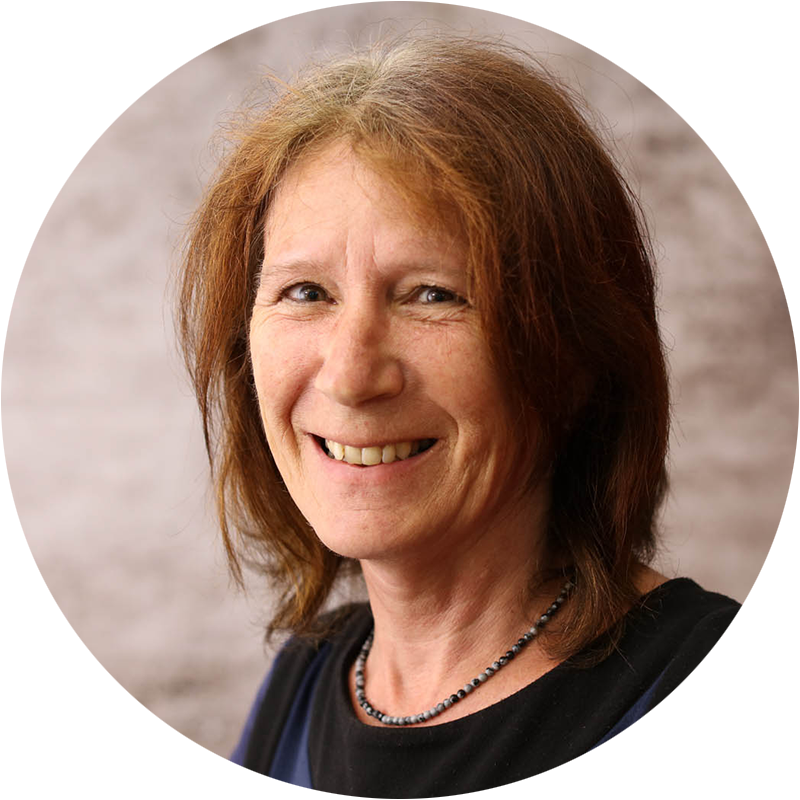
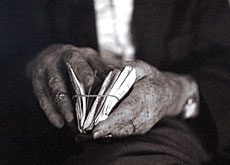
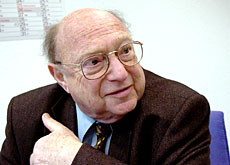
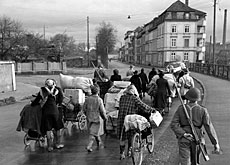
You can find an overview of ongoing debates with our journalists here. Please join us!
If you want to start a conversation about a topic raised in this article or want to report factual errors, email us at english@swissinfo.ch.